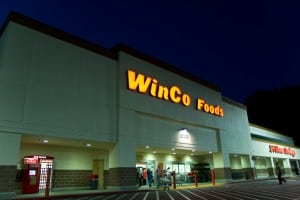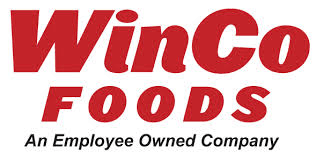
By: Amanda Froelich,
Remember the funky art stores, dignified co-ops, or family grocery stores that used to be prevalent in small towns across America? And then, do you also remember the excitement that arose over the new super-stores being built which could potentially offer everything in one location?
At the time, nothing could be cooler than a Wal-Mart being introduced into a small city, but before long, niche businesses and special sales stores became boarded up as they could no longer compete with the low-cost prices and longer business hours. For a while, few have thought nothing of it, but documentaries such as “Walmart: The High Cost of Low Prices” and “The Corporation” have helped bring to attention the mighty implications supporting such huge super stores may cause.
Wal-Mart is no longer a giant store that offers products from pet supplies to clothes, but a machine that is controlling the low wages of workers and diminishing unique productivity from sprouting in heart-centered towns.
But all that may change. A new type of business (which is not actually new at all, but established in 1967) can offer prices good or even better than Wal-Mart, and even healthcare coverage with dental and vision as low as $40 a month. It’s not a stereotypical granola-crunching health food store, but a company which has expanded across the Western United States (including Arizona and two new stores in Texas). And it’s expected to go nationwide before long!
This company is WinCo Foods, which hails from Boise, Idaho and according to Super Market News, is rapidly spreading across the States:
WinCo Foods, Boise, Idaho, is scheduled to open its first two Texas stores on Thursday, with at least three more Texas locations due over the next 13 months, the company said. The first two stores will be in Fort Worth and McKinney, Texas, on opposite sides of the Dallas-Fort Worth metroplex, with each covering approximately 95,000 square feet, said Mike Read, the company’s spokesman. Three additional stores are likely to open in Texas during the company’s fiscal year, which begins April 1, Read said — in Duncanville, North Richland Hills and Lewisville.
The employee-owned and operated “socialist” company can provide groceries at the same or cheaper prices than Wal-Mart, and it’s been operating since 1967. It shifted to an employee-owned business in 1985, and now is privately owned by companies who proudly brag about it on their website:
For over 40 years WinCo Foods has fostered a tradition of success by focusing on very large stores with a wide selection of national brands at prices below our competition. In addition, the very nature of having employee stockholders that have seen their Employee Stock Ownership Plan (Pension Plan) grow at a 21.51% annual compound growth rate creates an extremely dedicated workforce. This has made WinCo a very successful company, one which in 1998 was listed as #266th on Forbes Magazine’s List of 500 largest Privately Held Companies and recently in 2011 holding to the 66th spot on the list.
WinCo is continuing this record of success, now operating 93 Employee Owned Stores in seven states (Washington, Idaho, California, Nevada, Oregon, Utah, Arizona and Texas) with nearly 15,000 employees and continues to grow by opening new stores and adding new members to the company every year.
And how good are the pension plans? This good:
The company also has a pension, with employees getting an amount equal to 20% of their annual salary put in a plan that’s paid for by WinCo; a company spokesperson told the Idaho Statesman that more than 400 nonexecutive workers (cashiers, produce clerks and such) currently have pensions worth over $1 million apiece.
While 93 locations in 7 states is nowhere near the league of Wal-Mart, the business shows that a company CAN take care of its employees AND still be profitable. Different than a publicly-traded entity, there are no stockholders demanding even larger returns on dividends every quarter at the expense of both the consumer and the employees. Instead, the employees are the stockholders and the better the company does, the better they do.
And what’s more, the business is eco-friendly and continuing to expand.
Large corporate stores may offer convenient prices and easy-to-locate items, but the exchange of energy from employees and those who live in the same town is not fair. Companies like WinCo show how this need not be necessary. In the future, it and others will most likely continue to expand across the United States as competition for Wal-Mart, Target, and other large corporations.
Additional sources:



